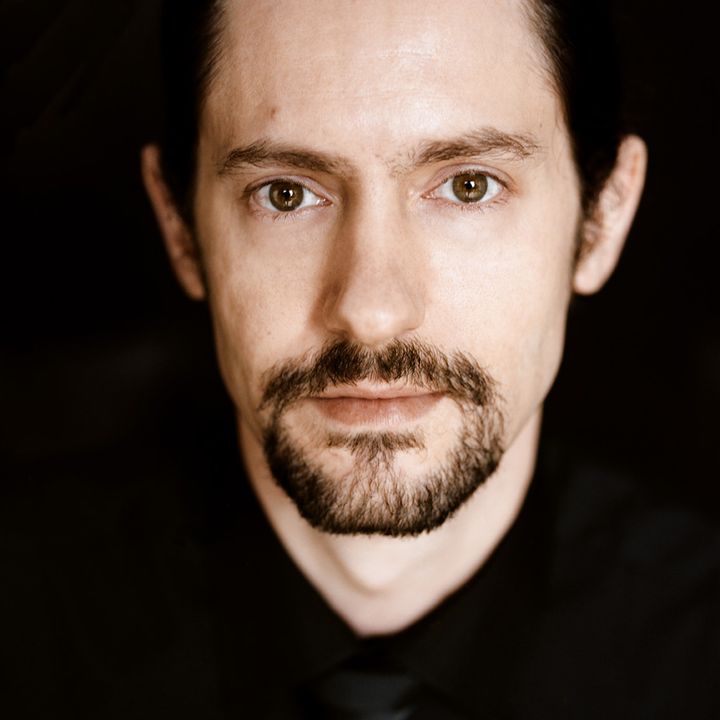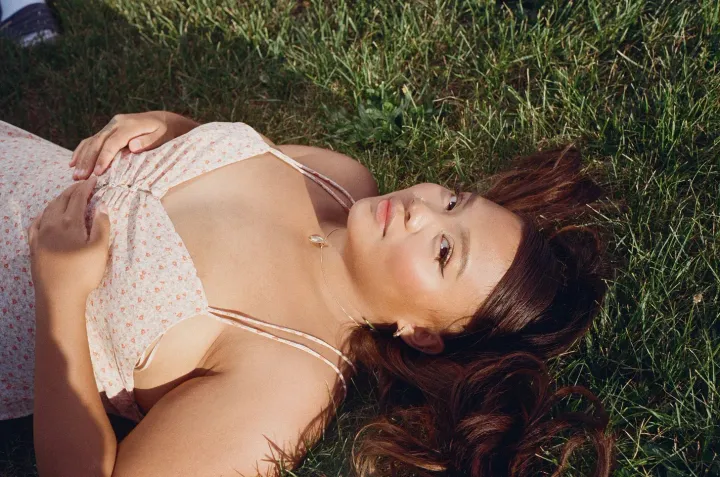The Guitar and Classical music - an interview with Emmanuel Lacopo
Emmanuel Lacopo is a guitarist, composer, and doctorate student at McGill. His start in music in metal bands in high school led him to study music at Yale before returning to Montreal. Emmanuel discusses his research which focuses on the history of the guitar and its place within classical music.

Emmanuel Lacopo is a guitarist, composer, and doctorate student at McGill University. He got his start in music in metal bands in high school which led him to eventually study music at Yale before returning to Montreal. In his interview with GigLinked, Emmanuel discusses his research which focuses on the history of the guitar and its place within classical music.
Hi Emmanuel, tell us a little about yourself.
The best way of explaining what I do now is to say I'm a guitarist, I'm a composer. I love to make music and the guitar is just the best thing I have to translate my ideas into the real world. I've been playing guitar pretty much as long as I can remember, since I was a little kid. But my journey has been kind of a roller coaster with lots of twists and turns. I by no means started as a classical musician, I played in a bunch of rock bands and metal bands growing up. In high school, some of my closest friends and I started an instrumental progressive metal band and they remain some of the best musical experiences of my life. But then throughout high school, I learned that I could go to school for music - and that changed everything, I was like, “Yeah, of course, I want to do that.” Up to that point, I was completely self taught and I had never prepared for a university audition before, I had no idea what that even entailed. The only options at the time were to study jazz music or classical music, both of which I had no experience with.
So at that point, I thought it was time to get a teacher to kind of help me put this together. One of my friends recommended someone who came over with just an acoustic classical guitar, and he played me this piece by Barrios - it gave me goosebumps that completely changed my life. I thought to myself ‘this is what I want to do with my life.” It wasn't necessarily classical music or the guitar, I just wanted to make people feel the way I felt at that moment. This same teacher actually introduced me to so much music - players like John McLaughlin, Al Di Meola, Paco de Lucía, and a bunch of classical music. I went all in on studying classical music. The rest is history.
I had this weird thing by the end of my undergraduate degree. The guitar really wasn't bringing me that much joy anymore and rather, it was causing me a lot of anxiety. The high stress environment of music academia and the pressure of right way vs. wrong way of doing things in classical music. I felt like I was leaving behind a whole inspiration of music, a whole world of music that I grew up on in pursuit of playing correctly. I didn't necessarily know what I wanted to do with guitar anymore. But I said, you know, my undergrad is finishing, let me apply to some Masters programs and finally I was lucky enough to get a full scholarship to Yale (getting that acceptance letter was mind blowing). Once I got to Yale, I discovered that my new friends and classmates had a different way of thinking about music and their artistry. This reinvigorated my love for music, and my love for guitar. I rediscovered that the guitar can be more than this one traditional thing that's been done the same way over and over again. It could expand, it could grow, and it evolves and can be imbued with your own creativity.
Circling back to today, I’m now focused on merging all my inspirations - the music I grew up on and classical music - and using my love for the guitar to show what my instrument is capable of.
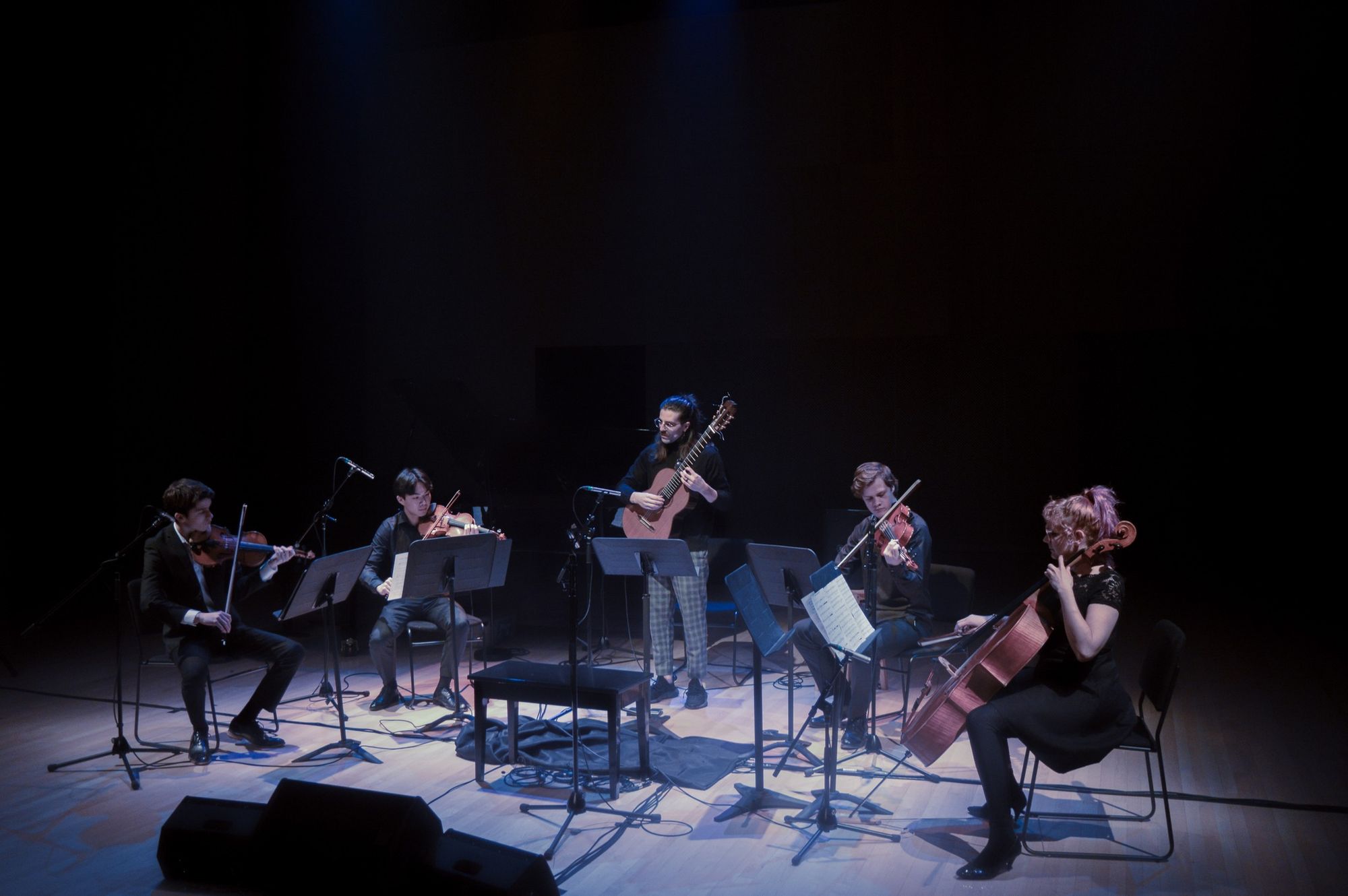
What is your research all about and how related is it to your Master’s studies?
The master's degree was very much like other music programs, that is, very performance based - you're playing all the time, you're learning music, you're presenting the music, but at Yale it was all really open ended. In the past, I’ve experienced situations where authority figures in academia would tell me, “No, you're a performer you don't get to write, music composers write music,” or that, “the electric guitar and electronics have no place in classical music, you have to present the the beauty of an acoustic instrument in this music.” But at Yale there was none of that. We had space to come up with ideas and make them happen - exploration was welcomed. There were also a ton of resources. We were very privileged in terms of having the help and tools we needed to be creative.
When I started my doctorate degree, I really wanted to explore the guitar in 21st century classical music because I don't believe we're utilizing it to the full extent. And then even when the electric guitar is used in classical music, I found that it's not treated with the same respect as say, an acoustic classical guitar. There’s simply not as much attention to detail and intent behind the sounds we're creating and how we're creating them. And so I want to not only show how we can notate these things in a traditional sense, like in a Western format, on a score, but also show that classical music doesn't have to sound like it always has. We live in a time now where the lines are getting blurred and I want to show that if you use all the things that the guitar has been used for in other genres and bring that into classical music, you can create a really beautiful, exciting world of sound. You can create new things that you thought were never possible before with a single guitar. On the other side of this, I’m also investigating why the classical guitar has not necessarily been respected in classical music. To do this, I must explore the instrument’s journey in classical music from all of its early ancestors to today, as well as when and how the guitar migrated to have its foot in every genre. What are the reasons behind its estrangement within the genre? Why are people so opposed to amplification? These are some questions I aim to answer. Part of my research is the hands-on approach of creating new things to show what the guitar is capable of doing today, and the other side of it is this inherent idea of how we attribute musical value and what the ideas are behind what we allow into this world of music? Why do we keep things out?
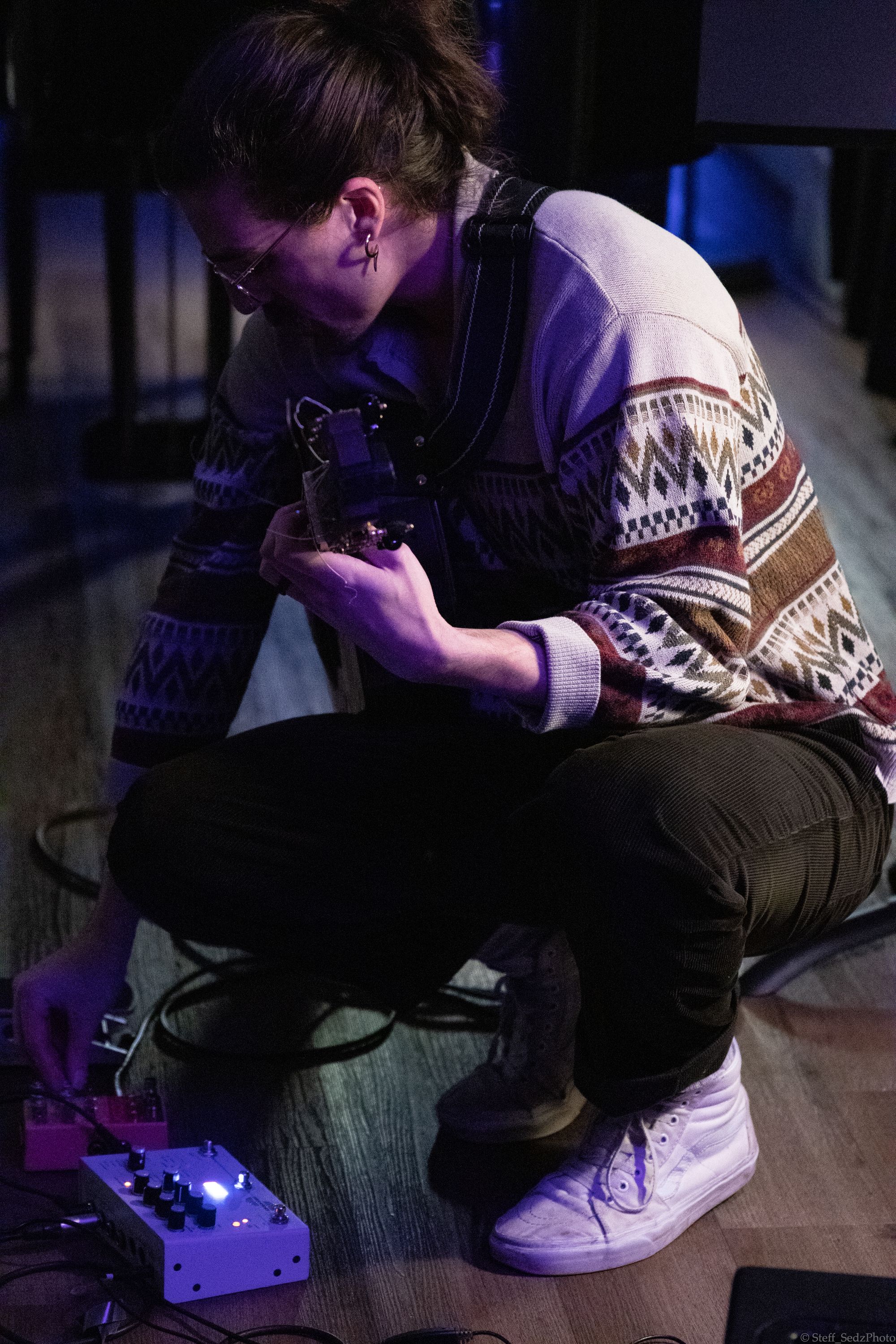
The lines are getting blurred, between genres. Are there other reasons why you think the research that you're doing is important now more than ever?
Yeah, it's a weird territory with classical music, because of all the requirements that we put in place to say that if it fulfills certain criteria to be considered classical music. This idea that something has to be notated and that an oral tradition that passes on from generation to generation, just through oral transmission can’t be included. Classical music has this obsession with the written score by the composer, the reason being that if you have the written score, with all the ideas of this one composer, then you can interpret what they wanted the piece to sound like and try to live up to the composer's expectations. Yet, if you look at the advent of being able to record an album, or a single, it provides an even more cemented idea of what the composer wanted, or what the musician wanted this piece to sound like - you have an actual sonic record of how it's supposed to sound like. And then there is this idea of, well, classical music is complex and is rhythmically dense, harmonically dense. But again, if you look today to the likes of progressive metal genres, if you look to Djent, if you look to like any of these new genres coming up, they are so technically intricate. All the aspects of classical music are kind of being mutated to fit these new genres. So, I don't necessarily know where the line ends, you know, like, where we stop calling something classical music and we start calling it something else. I think for me, what I'm trying to do most is just create opportunities to explore these concepts and try to have more of an open mind and not be so focused on the traditional sense of genre.
What are some key findings you’ve discovered in your research?
I mean, it's hard to say, right? When you do this sort of thing, you're learning something new every single day. I think a lot of me was more surprised about the things that people don't know about the guitar. Like, if you look at an instrument like the violin, there's centuries and centuries of treatises of just people building up this tradition of how violins are made, how violins are played, and their evolution. Because of this, composers, for example, can consult this research to further understand how the instrument functions. But there's not that same privilege with guitar and because of that, composers don't really know how to work with it.
We can also see that a lot of people, once the amplification and electric guitars started to become a thing, were looking down on electric guitar within the classical community, just because of its association with pop genres and the elitism in classical music. I think once I started to do this research, and when I started to realize that there is kind of an inherent hierarchy and structure within classical music of what is labeled as good art vs. bad art, and that the trajectory of the guitar’s history has been motivated with a desire to disassociate itself with the guitar, in jazz, pop, and rock music, you know, all these different things, and to really create this instrument with the proper classical provenance to like exists in this genre. It was super surprising for me, because you saw, directly saw this link between like the closed mindedness and this of the genre that then affected how the guitar evolved in the genre and how it's been used. And then you start to look through music from the late 20th century that, okay, these composers did have an open mind to explore this instrument of the electric guitar and electronics and technology and granted, this is becoming a bigger thing now in 21st century classical music, but still, you look at this music, and you see that there's a disconnect between what the electric guitar can do, the sounds that can produce and how it can be used to manipulate sound, versus what the composers are actually using it for and the detail that goes into the score.
We're in 2023 and we still don't really know how to properly write for this instrument. But the cool thing is that guitarists are now in a position where we end up just writing for our own instrument, and you see a lot of guitar composers that do this. We also see the way in which we can write for the guitar is endless. By association of not having this founded tradition with all these treatises and all this development, people discover their own way of approaching the instrument and there's always a new technique that someone invents or a new sound they can do. Once we start really paying attention to what all these people are doing, regardless, if they're in classical music, or outside of classical music, you start to say wow - the guitar can really do so much. It's a beautiful instrument that can be used for so many things within classical music.
Do you think there’s been, or have you seen a perspective shift among peers regarding the guitar and classical music?
It's always a little bit different.I feel like a lot of the way musical academia is run, especially in conservatory-type settings, you’re being trained for a career that's really, really, really rare. Like to be a touring classical musician that's playing all the time all over the world. It doesn't happen for a lot of people. There's a lot of reasons behind that and there's just too much to get into in one hour, you know what I mean? Some people understand that, and they're able to seek out, and reflect like, “what kind of music do I like, what do I like about music? What do I want to do with my music?” They ask these questions, and they're able to pull from different influences to be able to play in a bunch of different settings, because they love music at the heart of it.
There's also the other side of people who are strictly in the paradigm that classical music is this, it should be played this way and it should be done this way. There's still a very strong sentiment that when you're performing, you have to perform in these grand concert halls, and you wear concert black, and everyone has to sit down in silence, and you have to clap at the right time. It's a very elite world that's not very accepting of newcomers a lot of the time.I think there is a whole generation of classical musicians coming up that are very much against this notion and want to make it more of a communal experience that challenges expectations of what classical music can be. You'll talk to some people and you'll hear their ideas of what they want to pursue outside of school a lot of the time. But in my opinion, it shouldn't necessarily be that way. A Conservatory of Music should be a place where people are collaborating together, coming up with new ideas, coming up with new ways to approach things. Whether or not it is the best thing ever, or it fails completely is irrelevant. The purpose of it is to have a space where you can experiment with your ideas and meet like minded people to make beautiful artwork.
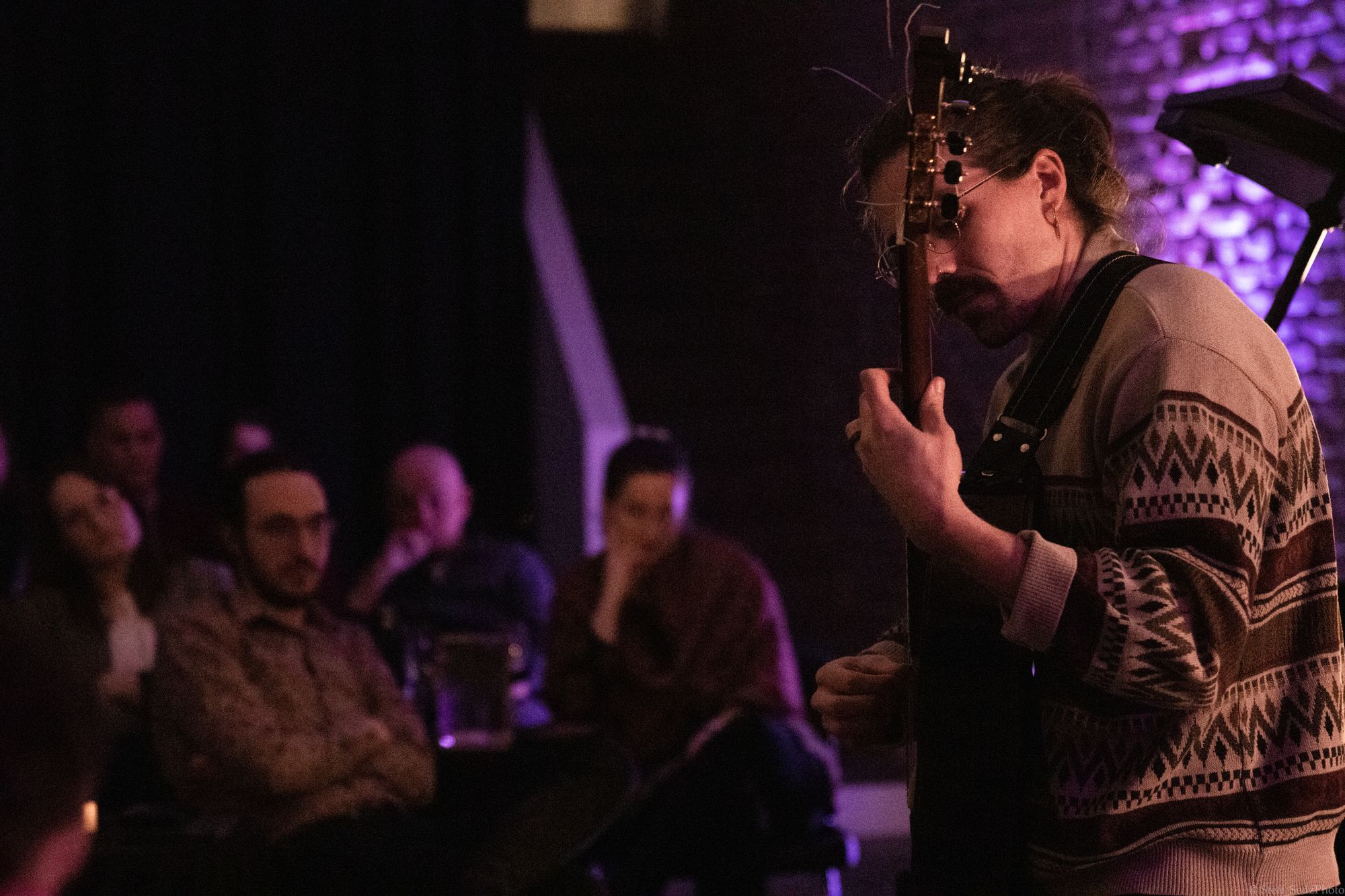
In other industries, we’re seeing younger generations of workers frequently changing careers and not staying at the same company or in the same field as was common with their parents. Are we seeing a similar shift with professional musicians?
I mean, it's an amazing position to be in. If you have the opportunity to teach guitar, and have this amazing job at this great university, and they pay you a ton of money to show up a few times a week, and teach people how to play the instrument - anyone would want that. You spent your whole life doing what you love - that’s great. But I think it's becoming more and more unrealistic to just do that. For one, there's not the amount of jobs to sustain the amount of people who are graduating from these conservatories every single year. I think people have to diversify what it is that they think they can do with music because it's not just playing their instrument. I think every single person has an upbringing in music that grants them a whole wealth of knowledge that someone else doesn't necessarily have. If you look at the curriculum at Berkeley in Boston, there's so much emphasis placed on music technology, knowing how to just record yourself, knowing how to open up a DAW, set up a session, get some sounds in there, how to set up basic miking techniques, all that sort of thing. If you go to many classical conservatories, there's very few people who can open up a session and record themselves and make something. But these skills are becoming more and more important. There's so many people that you study alongside throughout your time in music school that have these skills and I think it's important to remember that when you're in these spaces, it's not just the teachers that you can learn from, it's everyone around you. Some music schools are trying to develop these communities and show people that you don't just have one skill set that you can pursue as a career in music. I'm starting to see that more and more within my peers, just this idea of trying to get outside of what they've been told as the only way of doing things and the only career that you could pursue.
Great, is there anything else you would like to add?
The only other thing I can say is that the key to all this is just having an open mind, enough to explore and realize that we don't go to art school to just do this one thing as everyone has done it before. We go to art school to be able to create things and to meet people to create things with. If we're ever placing limitations on a genre, or on an art form, that's the wrong way of doing things. I'm really excited to see all the talent I'm surrounded by every day, my peers and even people we see online, doing what they love with classical music and allowing it to grow and evolve. I just think it's a really exciting time and I want to show people how cool classical music can be - like that's it.
More about Emmanuel:
You can book Emmanuel for private and corporate events through his GigLinked profile here: https://www.giglinked.live/artists/641f21109f876f9c14dd55eb
Here's the link to his upcoming concert: https://www.eventbrite.ca/e/ensemble-urbain-convergence-tickets-601754954267?fbclid=IwAR0h7VUUIE3fOQgPG6SwxHlLmeFt-xIbvYizh-NKQl6uzKZYpS5-VffObk8
And other links to stay in touch with Emmanuel:
Youtube: https://www.youtube.com/@EmmanuelLacopo/featured
Instagram: https://www.instagram.com/emmanuel_lacopo/
Bandcamp: https://emmanueljacob.bandcamp.com
Spotify: https://open.spotify.com/artist/4YElprDWXIAIk0sckhm8Lw
Website: https://www.emmanueljacob.com

GigLinked - the live music marketplace, boasts a community of skilled and diverse musicians who are eager to make your next event an unforgettable one. GigLinked's intuitive platform makes booking live music easy by automating scheduling, contracts, and payment.
www.GigLinked.live

